Exercise for a Healthy Gut Microbiome
Share
Let’s Get Physical!
Exercise is not only supportive of health for all the reasons you probably already know, but it also can help shift your gut microbiome in a more positive direction.
Interest in improving the gut microbiome has increased dramatically in recent years due to the wide variety of ways the bacteria within us impact how our bodies feel and function. Most research in the field has been focused on how the things we consume, such as foods and medications, and the things we are exposed to, like animals or chemicals, impact our gut flora.
All these things certainly do change the composition of the gut microbiome, but it turns out you can also change your microbiome through physical activity.
Why Would I Want to Change My Gut Microbiome?
The gut microbiome is an extremely diverse colony of bacteria and other microorganisms that live in the digestive tract. It contains tons of different species of bacteria, some of which are good for our health and some of which have the potential to infect us or promote health problems such as obesity or digestive issues.
The gut microbiome is responsible for so many different functions of the body, such as:
- Immune system and protection against pathogens
- Metabolism
- Digestion
- Mental Health
Obviously, we want to keep bad bacteria at bay so the body can stay healthy and can execute these functions properly.
Here are 3 common things that impact the gut microbiome negatively:
1. Foods
2. Medications
3. Environmental Toxins
These factors can change the gut microbiome in a negative way by decreasing the amount of good bacteria residing in the gut.
However, there are lots of foods that support health of the microbiome. Fermented foods, for example, are packed with tons of beneficial bacteria called probiotics that keep the gut microbiome in great shape.
As it turns out, exercise is also a way to keep the gut microbiome balanced and healthy by increasing the amount of good bacteria we have.
How Can Exercise Benefit the Gut Microbiome?
Diet is one of the leading factors that impacts the gut microbiome, and the typical Western diet consisting of lots of fat and sugar can seriously harm it. Luckily, research shows that exercise can actually prevent some of the negative effects of a diet high in fat.
The Science Speaks for Itself!
Check out these studies confirming the positive effects of exercise on the microbiome:
1. In this study, mice that were fed a high fat diet but also exercised did not gain as much weight as those that did not exercise. Now you might be thinking that’s obvious, because exercising forces your body to burn fat. That’s true, but researchers also found that exercising changed the composition of the exercise groups’ microbiomes by promoting the growth of pro weight-loss bacteria.
This means that exercising helps you lose weight in multiple ways. Of course, that’s no excuse to eat junk food all the time - a combination of exercise and healthy eating is still going to have a much stronger impact on your gut bacteria!
2. Recent research also shows that cardiorespiratory fitness is linked to microbial diversity as well. Cardiorespiratory fitness refers to how well your heart and lungs can supply oxygen during sustained physical activity, and it is higher in people who exercise regularly.
Researchers analyzed the gut microbiomes of people with a variety of levels of cardiorespiratory fitness to determine whether or not there are any differences. They discovered that people with higher levels of fitness had microbiomes with increased amounts of bacteria responsible for producing butyrate, a short-chain fatty acid associated with gut health. They concluded that increased exercise and fitness helps to maintain proper levels of beneficial bacteria key to producing important fatty acids.
3. Another recent study found similar results when both obese and lean humans that previously led sedentary lifestyles participated in rigorous exercise for 6 weeks. At the 6-week mark researchers analyzed their gut microbiomes and found significant shifts had occurred that were more pronounced in lean participants. They found that exercise promoted the growth of beneficial bacteria responsible for producing short-chain fatty acids. Interestingly they also analyzed the participants’ gut microbiomes after another 6 weeks without exercise and
found that they had gone back to their previous composition. This means that the changes caused by exercise aren’t permanent, so it is important to stick with it if you want to see long-lasting changes!
4. These findings were confirmed by another recent review of the impact of exercise on the gut microbiome. The authors of the review concluded that exercise has the capability to increase the amount of good bacteria in the gut microbiome, which helps to prevent obesity, disease, infection, and metabolic syndrome. In addition, it promotes the growth of bacteria that help with gut barrier function. This helps protect the body from gastrointestinal infection and disease.
Time to Get Moving!
In case you needed just one more reason to exercise, this is it! While physical movement may not be the first thing people like to have on their to-do list, the ever-expanding list of health benefits makes it a wise time investment. Exercise provides so many benefits to your body and your gut microbiome that it is definitely a great idea to make an effort to work up a sweat at least a few times a week.

Dr. Nicole Beurkens, PhD, CNS
Licensed Psychologist and Board Certified Nutrition Specialist
The world’s leading Holistic Child Psychologist, Dr. Beurkens heads a multidisciplinary evaluation and treatment clinic, is a bestselling author, published researcher, award-winning therapist, and devoted mother of four. In her more than 22-year career, she has supported parents with evidence-based strategies that target the root cause of children’s attention, anxiety, mood, and behavior challenges, empowering them to achieve their highest potential. Dr. Beurkens is a licensed clinical psychologist who holds advanced degrees in psychology, education, and nutrition.
Collective members are paid sponsors and receive compensation for their content, but all opinions are their own.
